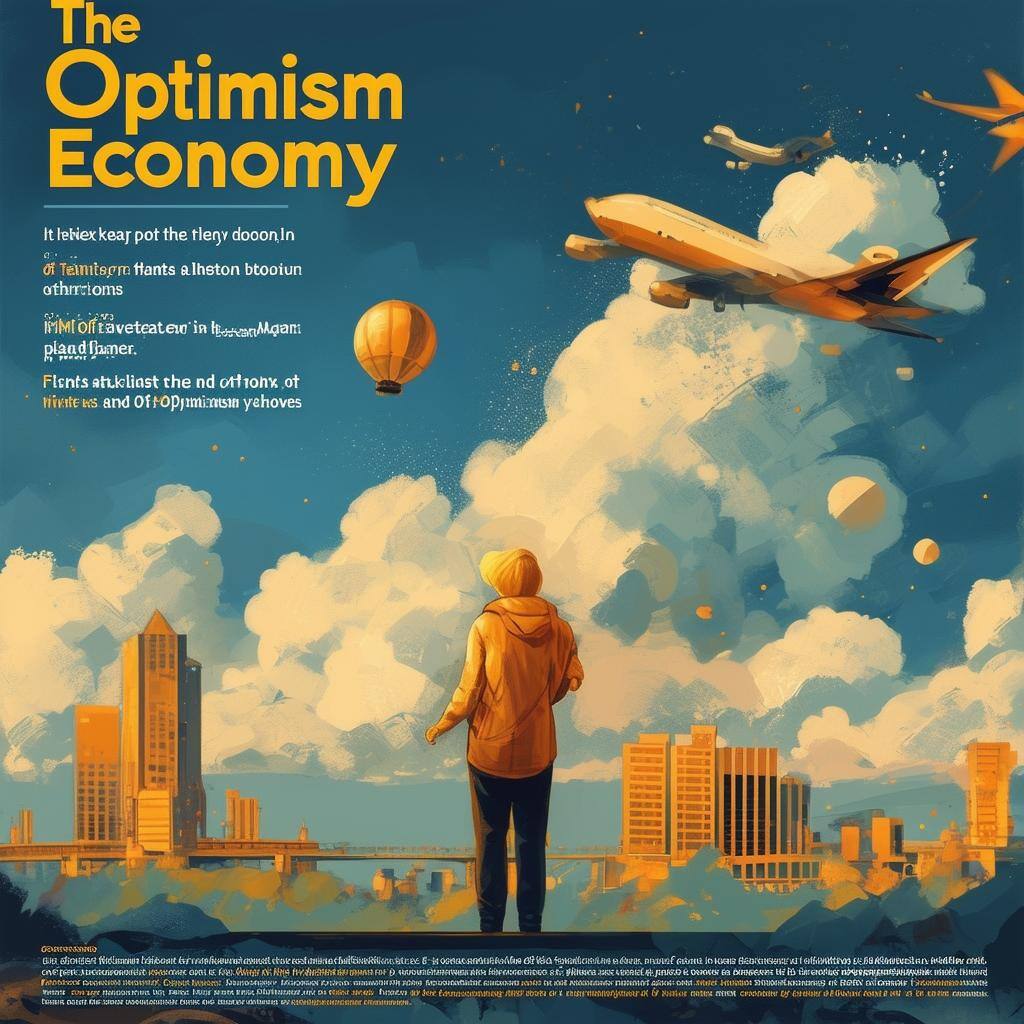Edelman’s Call for Action-Oriented Optimism in 2025 Elections
Edelman's Call for Action-Oriented Optimism: A Timely Global Imperative Amid Germany's and Australia's Election Campaigns
A Commentary by Victor Perton, That Optimism Man
As Germany and Australia engage in election campaigns, both nations face a defining question: how can political and business leaders restore trust, bridge divisions, and rebuild belief in the future?
In Germany, where the 2025 election campaign is well underway, the debate is shaped by economic uncertainty, social polarisation, and growing scepticism toward institutions. Meanwhile, in Australia, an election is likely in April 2025, with all major parties already in campaign mode, navigating public concerns about cost-of-living pressures, law and order, and dissatisfaction with democracy.
In this volatile landscape, optimism is not a luxury—it is a leadership necessity. Political leaders must recognise that fear-driven campaigns erode trust, while action-oriented optimism fosters engagement, innovation, and economic confidence.
Against this backdrop, Richard Edelman, President and Global CEO of Edelman, issued a striking warning in the 2025 Edelman Trust Barometer for Germany:
"We've got a real problem of grievance, and that comes from mass class divide, lack of agreed facts, and most importantly, a lack of belief in the future... We've got to get people back to a sense of optimism based on actions, and it's for all the institutions to weigh in on."
This warning was replicated in "Declining optimism" as the first of The Key Findings of the World Economic Forum Global Risks Report 2025
Action-Oriented Optimism and Constructive Optimism: Some Leaders Get It
Not all leaders are stuck in crisis narratives. Some recognise that optimism is a sentiment and a leadership strategy—a tool to drive innovation, economic growth, and social cohesion.
🔹 The Atlantik-Brücke, a key transatlantic policy forum, emphasised that one of the most critical takeaways from Edelman's commentary on Germany's election is the call for optimism. Their analysis underlines a critical challenge for political leaders:
✔ "The key for the next German government is to deliver specifically for individuals."
✔ Restoring trust requires concrete results that improve people's lives, not just political rhetoric.
✔ Optimism must be rooted in action—visible progress, economic stability, and policies that foster opportunity.
🔹 The Commonwealth Heads of Government, in their October 2024 communiqué, formally committed to "restoring hope and optimism in our common future."
🔹 Klaus Schwab, founder of the World Economic Forum, reinforced this at Davos, stating:
"Despite divergent positions and great uncertainties, the Annual Meeting 2025 will foster a spirit of cooperation and constructive optimism with the objective of shaping the forthcoming Intelligent Age in a more sustainable and inclusive way."
Optimism vs. Cynicism: Global Voices on the Optimism Imperative
🔹 Michael Franti, Musician
"I believe the great battle that's taking place in the world isn't between left and right. It's between cynicism and optimism. There are people who believe it's possible to create a better life and a better world. When we lose that sense of optimism is when we quit, when we give up."
🔹 Penny Mordaunt, the United Kingdom's former Leader of the House of Commons
"The faultline in politics at the moment is not between left and right but between optimists and pessimists. We need optimists for the next tough shift."
🔹 Tharman Shanmugaratnam, President of Singapore
"Creating bases for optimism has to be our central task everywhere in the world and through global collaboration. We must create bases for optimism to see ourselves through this long storm and to emerge intact; emerge a better place, and it can be done."
Dissatisfaction with Democracy and the Future
Edelman's findings are not unique to Germany. A recent study from Australia, Dissatisfaction with Democracy and Perceptions of Future Directions, sheds further light on the global crisis of trust in democratic institutions. Drawing on data from the Survey of Trust and Satisfaction in Australian Democracy (June 2023), the study identifies three profiles of dissatisfied individuals. It highlights how life satisfaction, civic engagement, and trust influence democratic attitudes.
Life Dissatisfaction and Distrust of Democracy Are Linked
The study found that individuals with low life satisfaction are more than three times more likely to be unsure about democracy's future and more than four times more likely to want to replace the current system entirely. These insights underscore the interplay between personal wellbeing and perceptions of democratic systems.
Similarly, research from South Africa highlights how dissatisfaction with democracy is closely tied to broader concerns about life prospects and wellbeing. In their article, South Africans are fed up with their prospects, and their democracy, Joleen Steyn Kotze and Benjamin Roberts argue that declining optimism in individual life circumstances fuels disillusionment with democracy itself.
This is particularly relevant to Australia's election campaign, where political parties must recognise that public trust is closely tied to life satisfaction. Policies focused on cost of living, law and order, housing, and economic opportunity must be framed in an optimistic, solutions-focused narrative—not just reactive crisis management.
From Grievance to Growth: The Case for Optimism in Action
Rather than dwelling on crisis narratives, political, corporate, and civic institutions must take bold, visible action to demonstrate progress. Research, including the University of Sydney's "Optimism Effect", proves that optimism drives economic growth, productivity, and innovation.

The Optimism Principle: Optimism as a Strategic Imperative
At the heart of the solution is The Optimism Principle, which asserts:
📌 "The answer to life's most pressing questions is optimism."
Optimism is not just about personal mindset—it is a leadership strategy that fosters resilience, innovation, and success.
"Germany and Australia need to embrace and promote their values as they are the cornerstone to greater social cohesion, optimism and trust. The key value ‘respect’ is absent today and must be restored, promoted and practised as a common courtesy," said Robert Masters, Chair of The Centre for Optimism.

The Optimism Economy: A Comparative Advantage
Optimism is not just good for society—it is a competitive economic advantage. Optimistic economies attract more investment, drive greater innovation, and foster long-term prosperity.

Optimism is Personal: My Favourite Practices to Cultivate and Foster Optimism
In my work at The Centre for Optimism, I've found that optimism isn't just an abstract concept—it's something we can practice and strengthen daily. Here are six ways to build optimism in your own life:
- Smile! – Share a genuine smile with every person you meet. Smile at yourself in the mirror. A smile can lift your mood and have a contagious effect.
- Joyful Greetings – Instead of "How are you?", ask "What's been the best thing in your day?" to spark uplifting conversations.
- My Best Self – Visualise and write about the best version of yourself in five years.
- My Optimism Superpower: Identify and embrace your unique style of optimism, whether resilient, purposeful, realistic, or infectious.
- Surround Yourself with Optimists – Spend time with those who reinforce a hopeful, solution-focused mindset.
- Practice Gratitude – Express thanks frequently, and journal the three best moments of your day.
Optimism is a choice and a discipline. Leaders and individuals alike have the power to transform narratives, drive solutions, and create a better future.
How will you cultivate optimism today?


.png)
.png)
.png)

.svg)